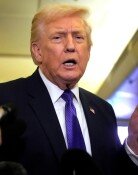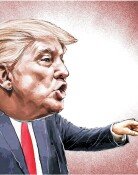Presidential Office rebuff FSS chairman’s suggestion to resume short-selling
Presidential Office rebuff FSS chairman’s suggestion to resume short-selling
Posted May. 24, 2024 07:54,
Updated May. 24, 2024 07:54
The Presidential Office firmly rejected Finance Supervisory Service Chairman Lee Bok-hyun's suggestion to partially resume short-selling in mid-June, made during his visit to New York on May 16 to attract investors to the Korean stock market. Chairman Lee’s sudden announcement, made without coordinating with the Presidential Office, caused the issue. Just two days earlier, the Presidential Office had officially apologized for the confusion caused by its proposal to ban direct overseas purchases, and one day later, it reversed the policy prohibiting the elderly from driving.
Resuming short-selling, which has been completely banned since November 2023, is seen as necessary to attract foreign investors to the Korean stock market. Short-selling allows investors to borrow stocks they believe will decrease in value and sell them on the open market. Foreign institutional investors use short-selling to hedge risks.
The problem arose because President Yoon Suk Yeol had publicly stated that he would not allow the resumption of short-selling until a system was in place to address its side effects. Following Lee’s remarks, there was a backlash from retail investors in online communities, accusing the government of breaking promises right after the general election. The Presidential Office quickly clarified that Lee’s statement was his personal opinion and that no timetable had been set for resuming short-selling.
Recurring policy missteps and inter-ministerial conflicts stem from a lack of experts in the Presidential Office, government ministries, or control centers to coordinate policies comprehensively. Implementing the policymaking methods used in developed countries, where a Red Team is established to represent opposition views before proposing a policy to minimize side effects and backlash, is also challenging. For instance, in the case of the direct overseas purchase regulation, the State Coordination Office and relevant ministries held over 20 meetings but failed to anticipate consumer backlash.
To prevent recurrence, the causes and processes leading to a policy failure must be reviewed. The government's policy management skills seem to be regressing rather than improving, as evidenced by last year’s “69-hour workweek controversy” that derailed labor reform in its early stages. Korea cannot afford to continue tolerating a "third-rate government" that hinders its people and businesses.







